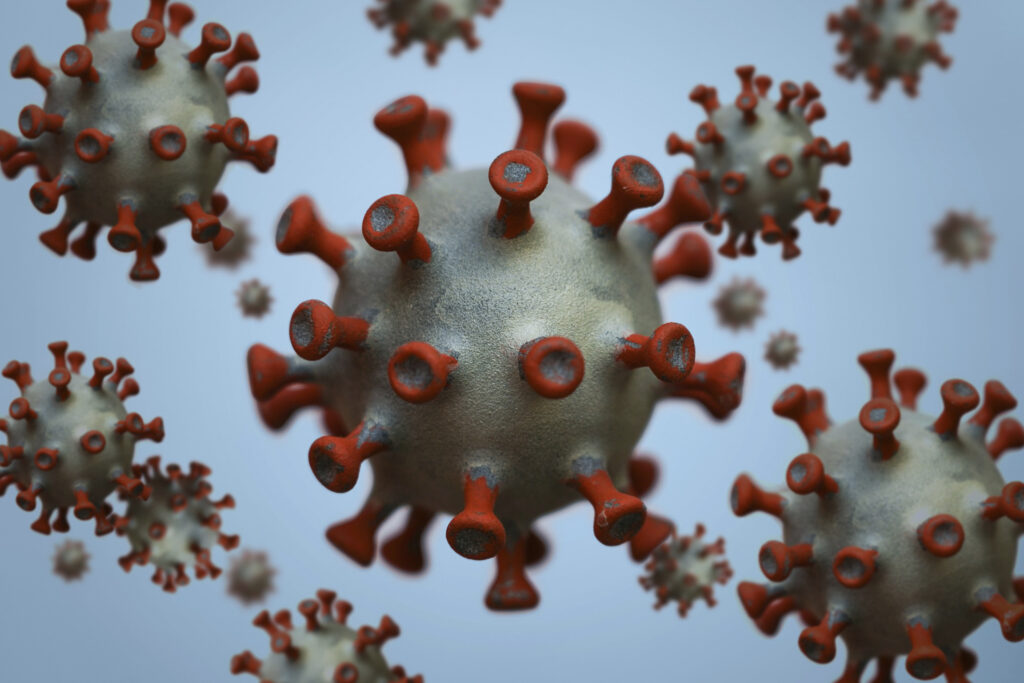Russian authorities have dismissed growing speculation over reports of an unidentified virus that causes patients to cough up blood and suffer from prolonged high fever, saying no new pathogens have been detected.
The rumors, which originated on the Telegram channel SHOT and were amplified by local media, centered on patients exhibiting severe respiratory symptoms but testing negative for influenza and COVID-19.
Officials now attribute the cases to common respiratory infections, including Mycoplasma pneumoniae.
Rospotrebnadzor, a Russian agency responsible for overseeing consumer rights protection and public health, said in a statement that there is “no evidence of a new or unidentified virus circulating on the territory of the Russian Federation.”
Newsweek has contacted Rospotrebnadzor and the Press Service and Information Department of the Government of the Russian Federation, via email, for comment.
Why It Matters
The speed with which viral rumors can trigger public concern is a growing challenge for health officials in Russia and globally.
Claims of a mysterious respiratory illness come amid lingering sensitivities from the COVID-19 pandemic, where early miscommunication and underreporting contributed to delayed containment.
Authorities in Moscow moved quickly to investigate and quash the reports.
But there has long been widespread distrust in Russian authorities when it comes to transparency.
For example, during the COVID-19 pandemic, multiple doctors said they did not trust the COVID-19 vaccine touted by President Vladimir Putin.
After Russia’s health ministry announced that the production of the vaccine developed by the Gamaleya Institute outside of Moscow had begun in 2020, 52 percent of 3,000 medics surveyed said they would not take it.
What To Know
Reports about an “unknown virus” first surfaced on March 29 on SHOT, a Russian breaking news Telegram channel with purported links to various federal agencies.
It said that patients in multiple Russian cities were reporting high fevers, body aches and severe coughing that persisted for weeks, which sometimes included blood.
But tests for influenza A, B, and SARS-CoV-2, which could be responsible for these symptoms, reportedly came back negative.
One woman identified only as Alexandra told SHOT that by the fifth day of illness, she began coughing up blood. “Even after a week of taking antibiotics, the coughing fits didn’t stop,” she said.
Alexandra said her physicians eventually diagnosed her with Mycoplasma pneumonia, a bacterial infection that mimics many symptoms of viral flu and pneumonia.
The symptoms described—initial fatigue and aches, followed by high fever and a debilitating cough—were similar in several other cases mentioned by SHOT.
Doctors reportedly listed the cause on medical forms as “acute upper respiratory tract infection of unspecified origin,” and recommended ambulance calls if symptoms worsened.
The reports were picked up by mainstream Russian media, including Lenta.ru and Newizv.ru, which repeated the claims while also noting the absence of formal confirmation from state health agencies.
Newizv quoted people who had posted about their symptoms in the comments section of the Telegram channel Moscow Live’s report about illness in the city.
One person said: “It’s a nightmare, my ribs are already hurting from the cough, it’s impossible to eat, sometimes even the medications make me feel sick.”
Another said: “The cough hasn’t gone away for over a month, the fever lasted for almost three weeks. I got over Covid much easier.”
But Rospotrebnadzor said on Monday that the situation was “stable and completely controlled.”
What People Are Saying
Rospotrebnadzor said: “Currently, the epidemiological situation in the Russian Federation for a group of respiratory infections, including SARS, influenza, COVID-19 and community-acquired pneumonia, is stable and fully controlled. There is a decrease in the incidence rate. The epidemiological situation for this group of infections in Moscow is also stable.
“In Russia, there is a steady downward trend in the incidence of COVID-19: in the last week, 3 thousand cases, which is 20.2 percent less compared to the previous week. There is also a decrease in the incidence of ARVI and influenza by 10.8 percent for the last week. A decrease in the number of hospitalizations was recorded, which amounted to 8.6 percent. At the same time, the activity of influenza B and A(H1N1) viruses remains.
“The situation with the incidence of community-acquired pneumonia is also stable. The incidence rate last week corresponds to the indicators of the previous week and does not exceed the average value for the last month. During this period, there is no significant trend in the number of hospitalized.
“In the course of ongoing epidemiological monitoring and genomic surveillance in the Russian Federation, no new viruses or viruses with significant mutations have been detected.”
It went on: “The situation is under the strict control of Rospotrebnadzor.
Gennady Onishchenko, of the Russian Academy of Sciences, told the Russian news agency TASS: “In St. Petersburg we have the Pasteur Institute, which only deals with influenza, and its official report does not contain any information about any new virus.
“Therefore, let’s not brush this information aside, we will carefully decipher it. <…> Most likely, there is no virus there, let’s not hype it up now, but let’s look at the data of at least one study. The most important thing is where this virus is, where these diseases were registered.”
What Happens Next
Rospotrebnadzor has not announced any additional public health measures in response to the reports, saying the current surveillance systems are sufficient to detect outbreaks. No rise in hospitalizations or regional infection clusters beyond seasonal norms has been reported.
The health agency reiterated that “spreading unverified information about public health can lead to unnecessary panic” and urged the public to seek medical guidance through official channels.
As for patients reporting persistent symptoms, infectious disease experts say more testing is needed to determine the scope and scale of infections caused by Mycoplasma pneumoniae or other respiratory pathogens. Dr. Vorobyov said, “People need to trust their doctors and not rush to conclusions based on what they see online.”
Read the full article here
